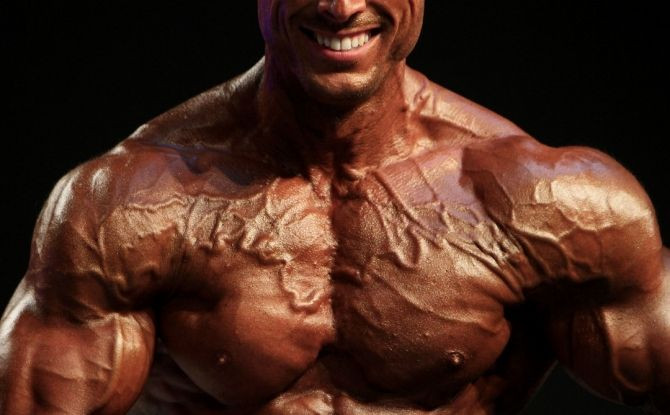Beefy Men Are More Likely to Be Sexist, Hostile Toward Women

Muscular men obsessed with their bodies are significantly more likely to have meathead attitudes towards women, according to researchers.
Psychologists say that body-obsessed bodybuilding men are more likely than other men to objectify women, be hostile toward women and have sexist attitudes.
A new study, published in the Journal of Men and Masculinity, surveyed a group of 327 heterosexual British men on their opinions about their own bodies and their perceptions about women.
Of all the participants, 38.5 percent were single, 31.2 percent were dating someone and 23.9 percent were married.
The questionnaires measured the men's desire for a buff body by asking them questions about how often they think: "I wish that I were more muscular" and their attitudes about women like how much they agree with phrases like: "I feel that many times women flirt with men just to tease them or hurt them," and "Intoxication among women is worse than intoxication among men."
Researchers found that men who had more desire to get ripped were also more likely than other men to score higher on chauvinistic beliefs and exhibited more hostility toward women as well as objectification of women.
"Results showed that greater drive for muscularity was significantly predicted by stronger objectification of women, hostility toward women, and sexist attitudes, once men's age and body mass index had been taken into account," researchers wrote. "These results suggest that oppressive beliefs held by men are associated with a desire for a more muscular physique."
Lead researcher Viren Swarmi, of the University of Westminster in the United Kingdom and his team believe that men who showed more interest in being muscular are more likely to have chauvinistic attitudes toward women and gender equality because they are also more likely to endorse traditional stereotypes of masculinity, like possessing a muscular physique or because they may be channeling their negative self-esteem toward women.
"In addition, in societies where patriarchal structures are being challenged, some men may seek to reassert their masculinity by enhancing their physiques," Swarmi said, according to Live Science.
Past research has also found that men who hold stronger oppressive beliefs about women were more likely to find thinner women to be more attractive.
Experts say that these oppressive attitudes don't just affect dating and relationships. They can also affect women in the workplace and can lead to a more negative body image for women and poorer performance at the workplace.
Researchers say that men's oppressive beliefs directed at women, like looking down upon women who don't measure up to their standard of body fitness and beauty, also influence how men view their own bodies, specifically their drive for muscularity to achieve masculinity.
"We think men who hold oppressive beliefs about women and gender equality are also more likely to endorse traditional stereotypes of masculinity, which includes the muscular physique," Swarmi said.
Published by Medicaldaily.com



























